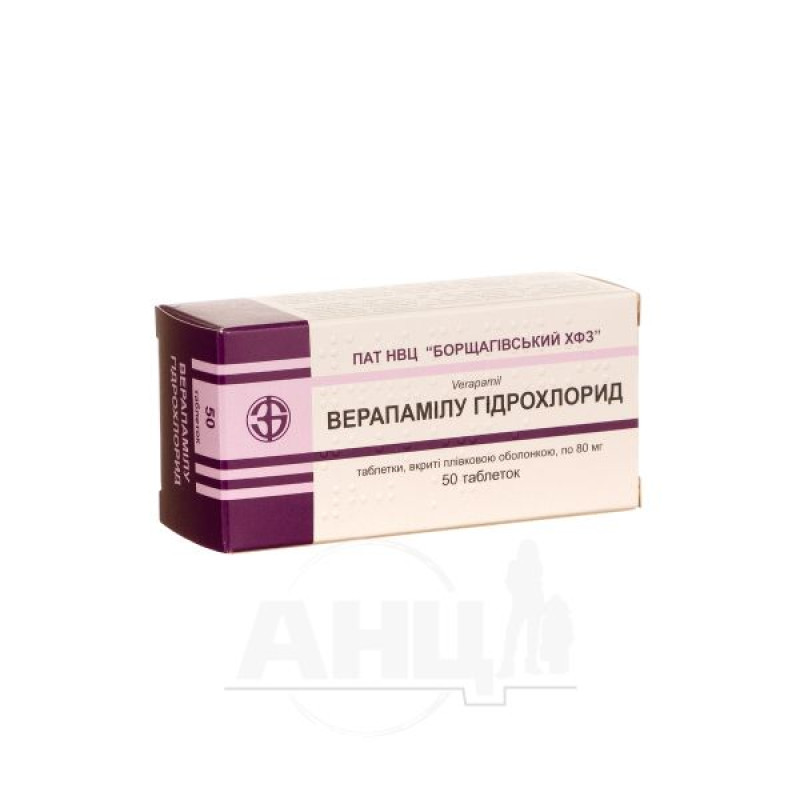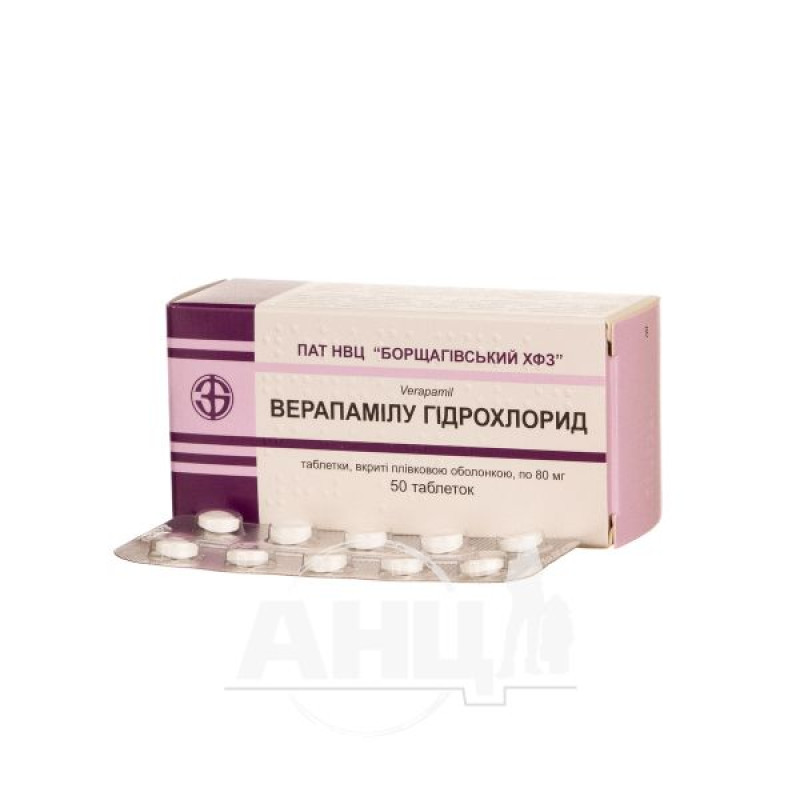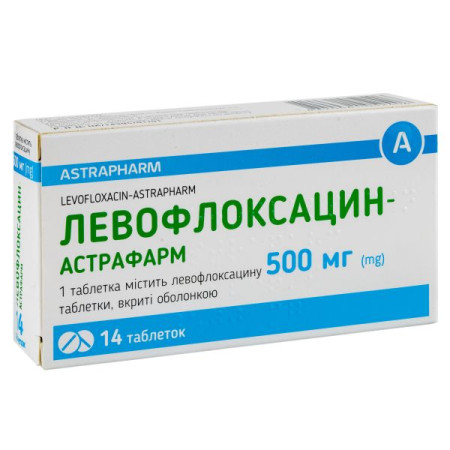Verapamil hydrochloride film-coated tablets 80 mg blister No. 50

Pharmacological properties
Verapamil (5-[(3,4-dimethoxyphenethyl)-methylamino]-2- (3,4-dimethoxyphenyl)-2-isopropylvaleronitrile hydrochloride) belongs to the phenylalkylamine group of calcium ion antagonists; along with the antiadrenergic group activity, an increase in the level of potassium in the myocardium also plays a significant role in the mechanism of action of the drug.
The drug causes dilation of coronary vessels and increases coronary blood flow, reduces myocardial oxygen demand. In myocardial ischemia, it helps to reduce the imbalance between the need and supply of oxygen to the heart, reduces myocardial contractility, without significantly changing cardiac output. Verapamil inhibits sinoatrial and AV conduction, exhibits an antiarrhythmic effect (belongs to class IV antiarrhythmic drugs). It has some natriuretic and diuretic effects by reducing tubular reabsorption. Inhibits platelet aggregation.
Verapamil is actively metabolized in the liver, so when its functions are impaired, the excretion of the drug is noticeably prolonged.
Indication
Verapamil as an antiarrhythmic agent is mainly prescribed for atrial arrhythmias - supraventricular paroxysmal tachycardias, extrasystoles (for ventricular arrhythmias, including extrasystoles, the drug is ineffective). Verapamil is also used for moderate AG (for severe forms of AG, nifedipine is much more effective). Depending on the nature of the pathological process, verapamil is prescribed IV or orally. IV administration is preferable for hypertensive crises, angina attacks, paroxysms of supraventricular tachycardia. Orally prescribed for chronic coronary artery disease to prevent attacks of angina pectoris (especially combined with atrial extrasystole and a tendency to tachycardia).
Application
Inside 30 minutes before meals (doses are selected individually). For mild forms of angina pectoris, 0.04-0.08 g is prescribed 3-4 times a day. If necessary, a single dose is increased to 0.16 g. The daily dose is 0.24-0.48 g. Maintenance therapy with the drug in lower, individually selected doses is carried out for a long time.
Children are prescribed the drug in low doses: under the age of 4 years, 0.02 g orally 2-3 times a day, up to 14 years - 0.04 g 2-3 times a day.
Tolerance to verapamil does not develop with prolonged use.
Contraindication
Cardiogenic shock, severe arterial hypotension, acute period of myocardial infarction with AV block, first trimester of pregnancy, breastfeeding period.
Side effects
Possible nausea, vomiting, dizziness, increased fatigue, peripheral edema, allergic reactions, more often - atonic constipation (especially with prolonged use). High doses can cause arterial hypotension, AV blockade.
Interactions
Use with caution simultaneously with b-adrenergic blockers due to the possible joint enhancement of their negative effects on intracardiac conduction and myocardial contractility.
Storage conditions
In a place protected from light.
There are no reviews for this product.
There are no reviews for this product, be the first to leave your review.
No questions about this product, be the first and ask your question.








